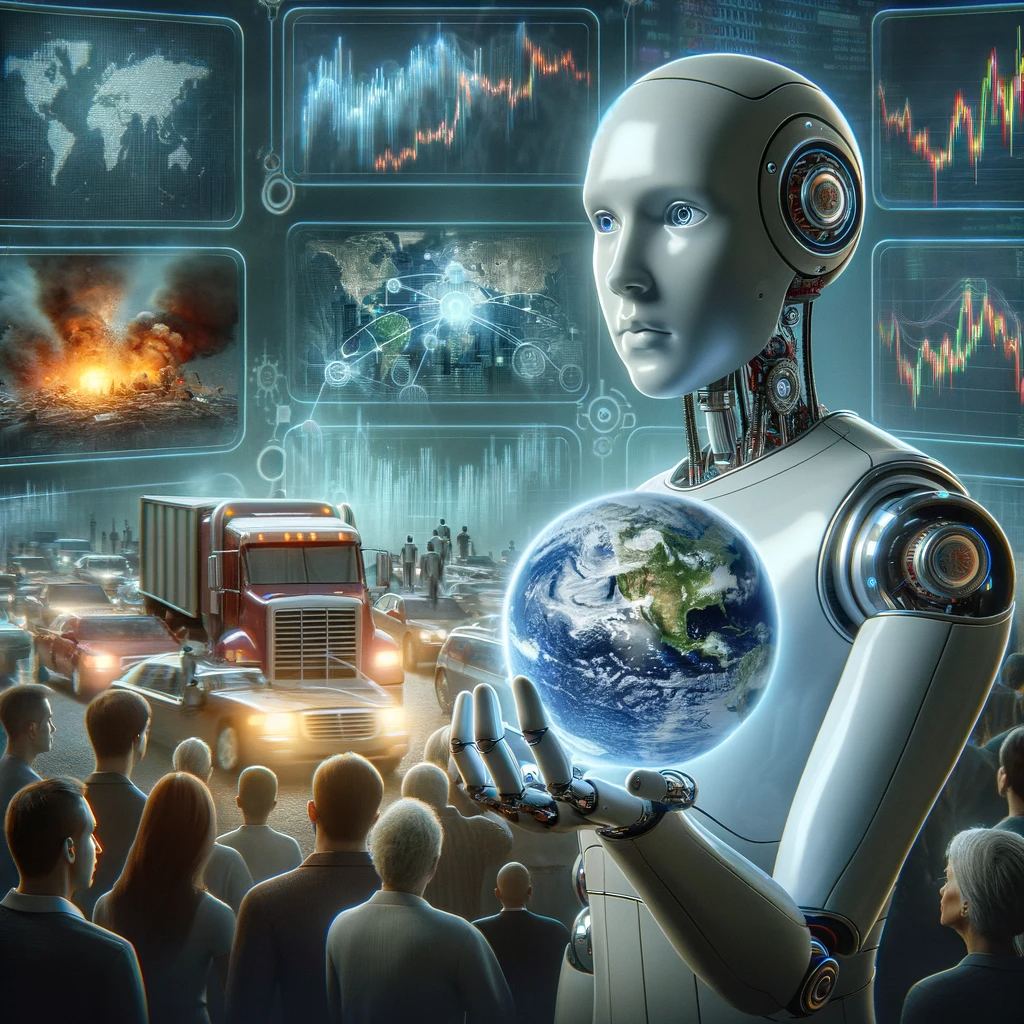The advent of advanced artificial intelligence (AI) technologies is poised to bring about a significant upheaval in societal power dynamics. One of the notable transformations on the horizon is the potential disruption of the so-called “words” class. As AI continues to advance, it has the potential to limit the status and earning potential of individuals whose professions heavily rely on words and symbols. The ability to write eloquently, once highly valued, may see a diminishing significance as AI algorithms can enhance the quality of textual content across various domains. Furthermore, being bilingual or multilingual, traditionally associated with highly educated status, may lose some of its practicality as AI-powered translation tools become more sophisticated. This evolving landscape could even challenge the supremacy of human authors, as readers may increasingly opt for interactions with AI-generated content. In essence, AI’s growing capabilities threaten to alter the societal hierarchy that has long favored “ideas people” who excel at developing and expressing new ways of thinking. This shift is both profound and unprecedented.
The Reversal of a historical trend
For centuries, Western societies have celebrated and elevated individuals skilled in developing, articulating, and implementing novel ideas. The Scientific and Industrial revolutions, in particular, catapulted such “ideas people” to greater influence and prestige. However, the rise of AI technologies may reverse this historical trend. As AI systems become increasingly proficient at generating creative solutions and content, they could diminish human innovators and thinkers’ relative importance and influence. This shift challenges the traditional social and economic hierarchy, demanding a reevaluation of the value assigned to intellectual and creative endeavors.
The inevitable conflict: AI and static institutions
One of the most significant concerns associated with the proliferation of advanced AI is the potential for conflict when dynamic technologies intersect with static institutions. AI’s transformative power could create social disruption, particularly for the “world” class, and spark higher-stakes arms races among nations. While the latter issue represents the most pressing concern, it is an inherent consequence of the global order centered around nation-states.
The competition in harnessing AI capabilities becomes crucial in a world where technology serves as a key determinant of a nation’s power and influence. The Western democracies and their allies face the imperative task of managing and prevailing in this race. This imperative is not exclusive to AI; it extends to future arms races, which could revolve around technologies such as solar-powered space weaponry, faster missiles, nuclear arms, or unforeseen methods of wreaking havoc. In light of this, the United States must position itself to win the AI race, not merely for technological dominance but also as a countermeasure against potential vulnerabilities in other areas.
The broader context of global competition
The AI race is part of a broader context of global competition that transcends technology. The dynamic interplay between nations, their strategies, and their pursuit of power and influence has been a consistent feature of international relations. The Western democracies and their allies must navigate this complex landscape adeptly.
In this context, the significance of travel and cultural learning should not be underestimated. Rationalist and Effective Altruism (EA) philosophies, which may undervalue these aspects, are ill-suited for comprehensively addressing foreign policy and international affairs. A nuanced understanding of different cultures and perspectives is invaluable in shaping effective foreign policy strategies and fostering international cooperation.
A changing world order
The advent of advanced AI technologies is poised to reshape society, disrupt traditional power structures, and spur international competition. The “words” class, characterized by professions relying on words and symbols, may face challenges to their status and earnings as AI continues to advance. The historical trend that elevated “ideas people” may be reversed as AI gains prominence. Moreover, the collision of dynamic AI technologies with static institutions is likely to generate conflict and necessitate strategic competition among nations.
Western democracies, particularly the United States, must win the AI race to maintain their position in an ever-evolving global order. This imperative extends to future arms races that may arise, emphasizing the importance of leveraging AI technologies to counterbalance deficiencies in other areas of national security.
In this complex landscape, the value of cross-cultural understanding and effective foreign policy cannot be understated. Rationalist and EA philosophies, while valuable in many contexts, may need to adapt to the nuances of international relations. As the world navigates the challenges posed by advanced AI, it must also grapple with the broader implications of evolving global competition.
The transformative potential of AI is not confined to technological advancements but extends to social, economic, and geopolitical dimensions, necessitating careful consideration and strategic planning by nations and societies worldwide.





